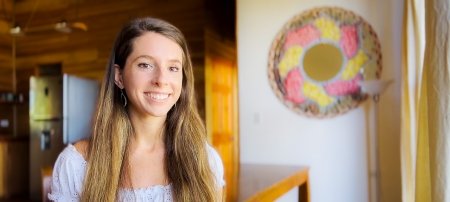The first in a series of student blogs by Michigan Tech’s representatives at COP25 in Madrid.
The announcement of this year’s United Nations Framework Convention on Climate Change (UNFCCC) Conference of the Parties (COP25) came with lots of excitement and a glimpse of hope of what is to come. One reason is the expected return of the United States to the negotiation table to discuss a way forward on climate change. According to the United Nations (UN), COP25 is designed to discuss full operationalization of the Paris Climate Change Agreement.
As more than 185 countries prepared for this global stage to negotiate progress, Michigan Technological University students were also offered an opportunity to be part of this year’s conference as official observers. Leading the team is Sarah Green, professor of chemistry, and she is accompanied by students from civil and environmental engineering, social sciences and geology.
About the Researcher
Preparing for the Journey
Preparation for COP25 started on a very bright note. The Michigan Tech team is attending this global event for the first time as part of a consortium of American universities including Colorado State University and Clark University.
In September, preparation started with a weekly virtual meeting for information and brainstorming about our contribution to the conference as observers. The time difference between us and other schools didn’t make the prep work any easier as the meetings ran late into the night. Our eagerly awaited access badges came in October, and we put the preparation in top gear.
Myself and my colleague Alexis Pascaris, a master's student in environmental and energy policy, were selected to attend a pre-COP25 retreat in Fort Collins, Colorado. October 11, Green, Pascaris and I hit the sky from the Hancock airport on a journey to Colorado for a highly intensive weekend of preparation. It was a student-faculty mixer involving planning, strategizing, conceptualizing and on-the-spot presentations by all teams. Alexis and I were there as part of the sustainable development goal team: The purpose of the UN’s Sustainable Development Goal 11 (SDG11) is to make cities and human settlements inclusive, safe, resilient and sustainable.
Funny, we got the first snow for the 2019 autumn in mountainous Colorado. Yeah, your guess was right… we were not so prepared for the precipitation! Nonetheless, it was fun hiking the mountains as a group on Saturday as we wrapped up the retreat.
Bumps in the Road
It has taken great effort to bring together everyone from different backgrounds and departments at Tech. The team worked on our SDG11 theme, “Safe, Circular and Sustainable Cities,” coined as (SC)2, that has brought together diverse but interesting perspectives.
The other ordeal has been successfully combining COP25 preparation with the rigor of coursework, teaching assistant duties and other things begging for our attention. For some of us who are international students, the initial fuzzy visa process to Chile was a disturbing issue.
I also took ill after we arrived in Colorado for the pre-COP25 retreat. I was told it was due to altitude and was advised to drink water like a camel travelling through the Sahara desert even when I didn’t feel like it. Yet, we delivered results at the retreat despite the health challenge.
Our return trip from Colorado was delayed, causing us to miss our flight from Chicago to Hancock, and we lost an entire precious day in transit. (Shoutout to Stuck Huskies).

New Destination
The ugly incidence of riots in Chile lead to the country’s cancellation of hosting the conference barely a month prior to the event. This led to lots of agitation and uncertainties about whether the conference would even occur in 2019; refunds for flight and hotel reservations became an issue for many of us. The possibility of finding another lodging host within a month and whether preparation should continue was unclear.
Luckily, Spain saved the situation by offering to host the conference in Madrid, and my observation is that no one seemed to be deterred by the circumstances. Our passion and determination to attend the conference and impact the world with our voice remains unshaken. What has kept us going as a Michigan Tech team in my opinion is our GDP. Hahaha… I got you there! I don’t mean gross domestic product, but rather our goals, determination and passion to showcase to the world how our University and other institutions are exemplifying sustainability.
Michigan Technological University is an R1 public research university founded in 1885 in Houghton, and is home to nearly 7,500 students from more than 60 countries around the world. Consistently ranked among the best universities in the country for return on investment, Michigan's flagship technological university offers more than 185 undergraduate and graduate degree programs in science and technology, engineering, computing, forestry, business, health professions, humanities, mathematics, social sciences, and the arts. The rural campus is situated just miles from Lake Superior in Michigan's Upper Peninsula, offering year-round opportunities for outdoor adventure.







Comments